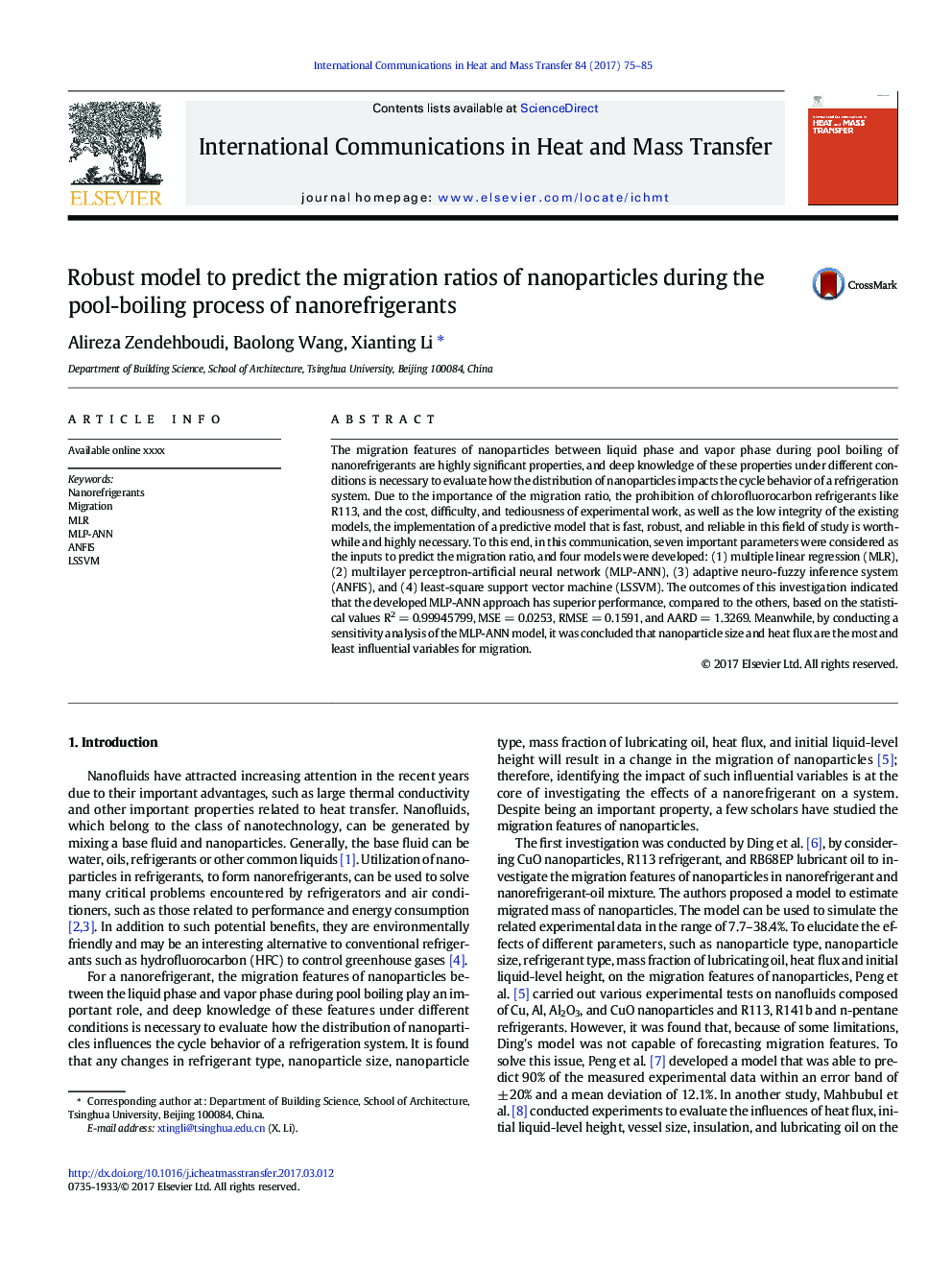| کد مقاله | کد نشریه | سال انتشار | مقاله انگلیسی | نسخه تمام متن |
|---|---|---|---|---|
| 4992958 | 1457470 | 2017 | 11 صفحه PDF | دانلود رایگان |
عنوان انگلیسی مقاله ISI
Robust model to predict the migration ratios of nanoparticles during the pool-boiling process of nanorefrigerants
ترجمه فارسی عنوان
مدل مقاومتی برای پیش بینی نسبت مهاجرت نانوذرات در طول فرایند غرق شدن نانو سردکن ها
دانلود مقاله + سفارش ترجمه
دانلود مقاله ISI انگلیسی
رایگان برای ایرانیان
موضوعات مرتبط
مهندسی و علوم پایه
مهندسی شیمی
جریان سیال و فرایندهای انتقال
چکیده انگلیسی
The migration features of nanoparticles between liquid phase and vapor phase during pool boiling of nanorefrigerants are highly significant properties, and deep knowledge of these properties under different conditions is necessary to evaluate how the distribution of nanoparticles impacts the cycle behavior of a refrigeration system. Due to the importance of the migration ratio, the prohibition of chlorofluorocarbon refrigerants like R113, and the cost, difficulty, and tediousness of experimental work, as well as the low integrity of the existing models, the implementation of a predictive model that is fast, robust, and reliable in this field of study is worthwhile and highly necessary. To this end, in this communication, seven important parameters were considered as the inputs to predict the migration ratio, and four models were developed: (1) multiple linear regression (MLR), (2) multilayer perceptron-artificial neural network (MLP-ANN), (3) adaptive neuro-fuzzy inference system (ANFIS), and (4) least-square support vector machine (LSSVM). The outcomes of this investigation indicated that the developed MLP-ANN approach has superior performance, compared to the others, based on the statistical values R2Â =Â 0.99945799, MSEÂ =Â 0.0253, RMSEÂ =Â 0.1591, and AARDÂ =Â 1.3269. Meanwhile, by conducting a sensitivity analysis of the MLP-ANN model, it was concluded that nanoparticle size and heat flux are the most and least influential variables for migration.
ناشر
Database: Elsevier - ScienceDirect (ساینس دایرکت)
Journal: International Communications in Heat and Mass Transfer - Volume 84, May 2017, Pages 75-85
Journal: International Communications in Heat and Mass Transfer - Volume 84, May 2017, Pages 75-85
نویسندگان
Alireza Zendehboudi, Baolong Wang, Xianting Li,
